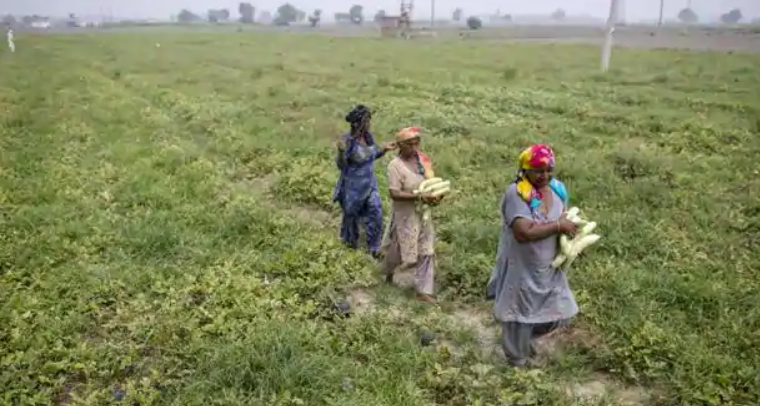Farm laws must be redrafted, sent to standing committee on agriculture
Much has been written about the merits/demerits of the three farm laws passed by Parliament. In this article, I intend to discuss the procedure adopted by the government to get these laws passed and implemented — though it has recently announced, under pressure no doubt, that the laws may be put on hold and their implementation delayed by 18 months. The problems faced by the agriculture sector are as old as agriculture itself. Some areas are in dire need of reform, but, perhaps, not in the manner the government has attempted to implement the three farm laws.
These laws — they relate to trade and commerce in farm produce, farmers’ agreement on price assurance and farm services and amendments to the essential commodities act — were first promulgated as ordinances in June, 2020. There is much to be said about the manner in which they were passed by the two Houses, especially Rajya Sabha, in clear violation of rules and procedures. But why were they promulgated as ordinances in the first place?
The Constitution gives powers to the President to make laws through ordinances. But the procedure, which has evolved over the last 70 years, also lays down the circumstances under which this power has to be exercised. A brief look at M N Kaul and S L Shakdher’s Practice and Procedure of Parliament would show how this issue was a matter of animated discussion between the first Lok Sabha speaker G V Mavalankar and the first Prime Minister Jawaharlal Nehru. In a letter to the Minister for Parliamentary Affairs, dated November 25, 1950, Mavalankar said, “The procedure of the promulgation of Ordinances is inherently undemocratic.” The reply to this letter was sent by Nehru himself. He wrote: “I think all my colleagues will agree with you that the issue of ordinances is normally not desirable and should be avoided except on special and urgent occasions.” In his letter of July 17, 1954, Mavalankar reiterated that “the issue of an ordinance is undemocratic and cannot be justified except in cases of extreme urgency or emergency”. He went on to warn the government by adding, “it is not a question of the present personnel in government but a question of precedents; and if this ordinance issuing is not limited by convention only to extreme and very urgent cases, the result may be that, in future, the government may go on issuing Ordinances giving Lok Sabha no option but to rubber-stamp the Ordinances.” We realize now how full of foresight his observation was.
It seems that nobody in this government cared to read Kaul and Shakhder, perhaps not even those in the bureaucracy who are advising the government. Or are they too scared to speak? There is no doubt, however, that passing these laws through the ordinance route was bad in law and in clear violation of established parliamentary practices. There was nothing urgent which could not have waited for Parliament to assemble.
Over the years, the procedure for passage of bills in the two Houses of Parliament has been refined. In most cases, the bills, after introduction, are referred to the concerned standing committee for examination and report. Only in rare cases are they passed directly by the two Houses. This was the procedure earlier and almost meticulously followed, even during the UPA regime. As chairman of the standing committee on finance between 2009 and 2014, I can vouch for the fact that we used to be extremely preoccupied with the examination of pieces of legislation and in preparing reports on them. In fact, the Companies Amendment Bill was examined by the committee not once but twice despite the opposition of the then corporate affairs minister Veerappa Moily and because of the support I received from Pranab Mukherjee. During the UPA regime, over 70 per cent of the bills introduced were referred to standing committees. The figure came down to 25 per cent during NDA 1, and I understand that during its second avatar not a single bill has been referred to the standing committees so far. Naturally, this list also includes the three farm bills.
Prime Minister Narendra Modi has described the passage of the bills as “a watershed moment in the history of Indian agriculture”. The farmers are not equally convinced. But PM Modi had also bowed his head at the steps of the Parliament building when he first entered it as PM in 2014 and again before the Constitution when he was reelected in 2019. Which is real, these acts of obeisance or giving the short shrift to Parliament and the Constitution? I leave it to your judgement.
The procedures established by Parliament over the years, the conventions, practices and precedents provide safeguards to ensure that the two Houses do not err in the passing of bills and the bills serve the public purpose for which they are meant. Yet, it is possible that it may make mistakes and that is why we have the power of review vested in the courts of law. The Supreme Court has stayed the implementation of the laws. There is enough ground for it to set these laws completely aside — for not following the established procedure, stepping over the power of states, the government itself agreeing, however reluctantly, to keep them in abeyance for 18 months and the opposition mounted by the farmers for whose good all this is being done.
Governments make mistakes, and at times, even commit blunders. The government has already eaten crow. My recommendation is that it should withdraw the laws entirely, redraft them if necessary and send them to the standing committee on agriculture. Passing legislations is the preserve of Parliament. Do maintain that sanctity. An obstinate attitude will only invite interference from unwanted quarters, including the judiciary, and invade the sanctity of this exclusive turf.




